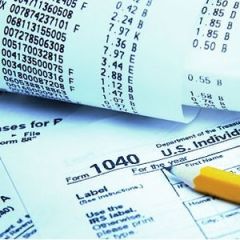- ABOUT US
- TAX SERVICES
- RESOURCES
- CAREERS
- (888) APRIL-15
- BOOK NOW
- CLIENT LOGIN
- FIND A TAX OFFICE
- (888) APRIL-15
- BOOK NOW
- PRICING & PROMOTIONS
- TAX SERVICES
- ABOUT US
- RESOURCES
- CAREERS
- CLIENT LOGIN
How Long Should I Keep My Tax Records?

Now that the tax season has come to an end, a common question for many of our clients is “How long do I need to keep my tax return copies and tax related documentation”? We suggest that all copies of tax returns should be kept indefinitely. You never know when you might need them. If you are a current R&G Brenner client, our “Go Green” service stores all tax returns prepared by us since 2009 in a secure “Cloud” online, so they will always be accessible to you when you need them. Here is what the IRS suggests:
…According to the IRS, taxpayers should keep a copy of their tax returns and all return-related, substantiating documents. The IRS typically requests to review wage and other income statements, plus receipts for qualifying expenses, for those tax returns selected for audit.
“Most taxpayers only need to keep tax records going back three years,” said Jennifer Jenkins, IRS spokesperson in a press release. “You’ll want to hold onto some documents a bit longer. Records relating to real estate, stock transactions, retirement accounts and business or rental property can help establish cost basis and gain or loss, which is needed to determine gross income potentially years down the road.”
Such tax records can include bills, credit card, canceled checks and other receipts, invoices, mileage logs, proofs of payment and any other records that support deductions or credits claimed on a tax return.
Of course if you do have documents that are older that are safe to dispose of, you want to make sure you properly dispose of “personally identifiable information” and any financial information. For this, the IRS recommends that paper documents get cross-cut shredded to effect 5/16 inch-wide or smaller strips, or completely burned. Depending on the type of magnetic media, the IRS generally recommends a combination of overwriting and Degaussing, followed by incinerating, shredding, pulverizing, disintegrating or grinding.
The IRS also wants to remind folks that the “three-year statute” on saving documents does not apply to tax dodgers.
“Those who file a false or fraudulent return, willfully attempt to evade tax, and/or fail to file a return, can be held accountable for back taxes due well beyond the three year limit that applies to the average taxpayer,” Jenkins said. “And, don’t forget the penalties and interest.”
For more information on what kinds of records to keep and recommended document disposal methods, see IRS Publication 552, Recordkeeping for Individuals, and IRS Publication 1075, Tax Information Security Guidelines for Federal, State and Local Agencies and Entities, which are available on the IRS website at www.irs.gov or by calling 1-800-TAX-FORM.
Source: ABC News





